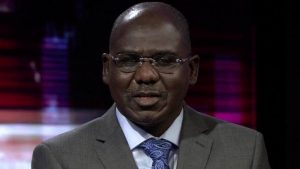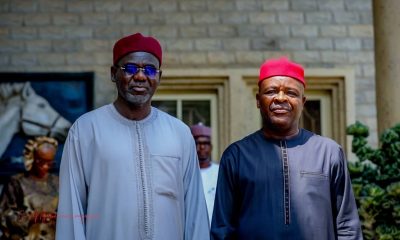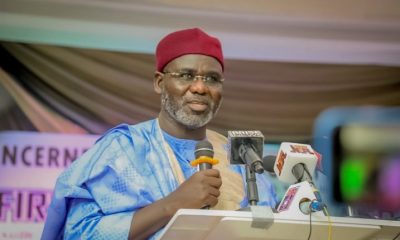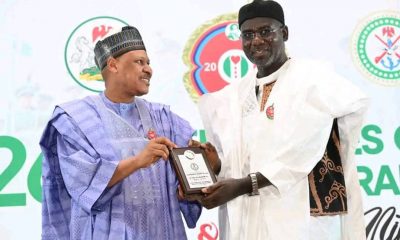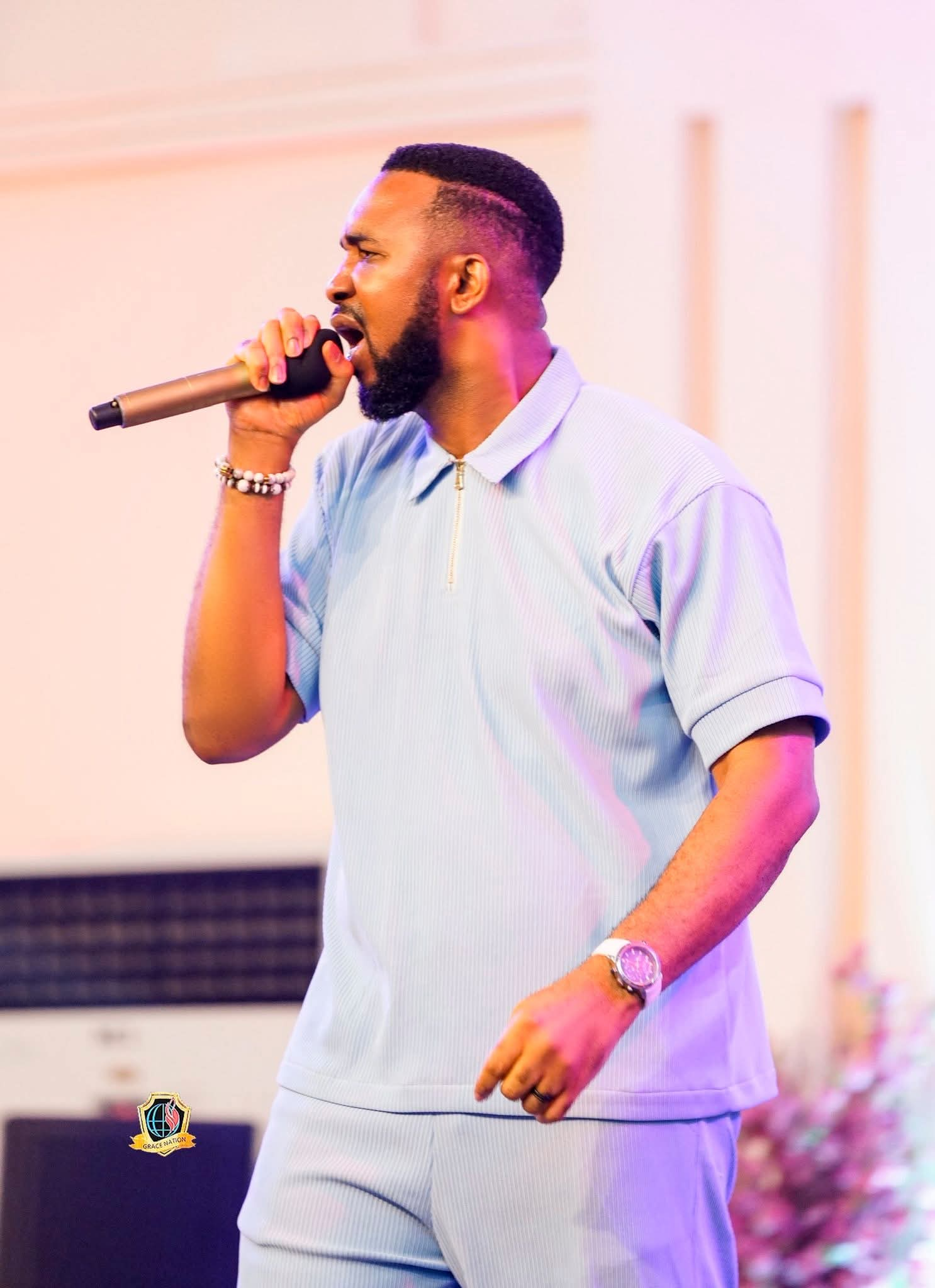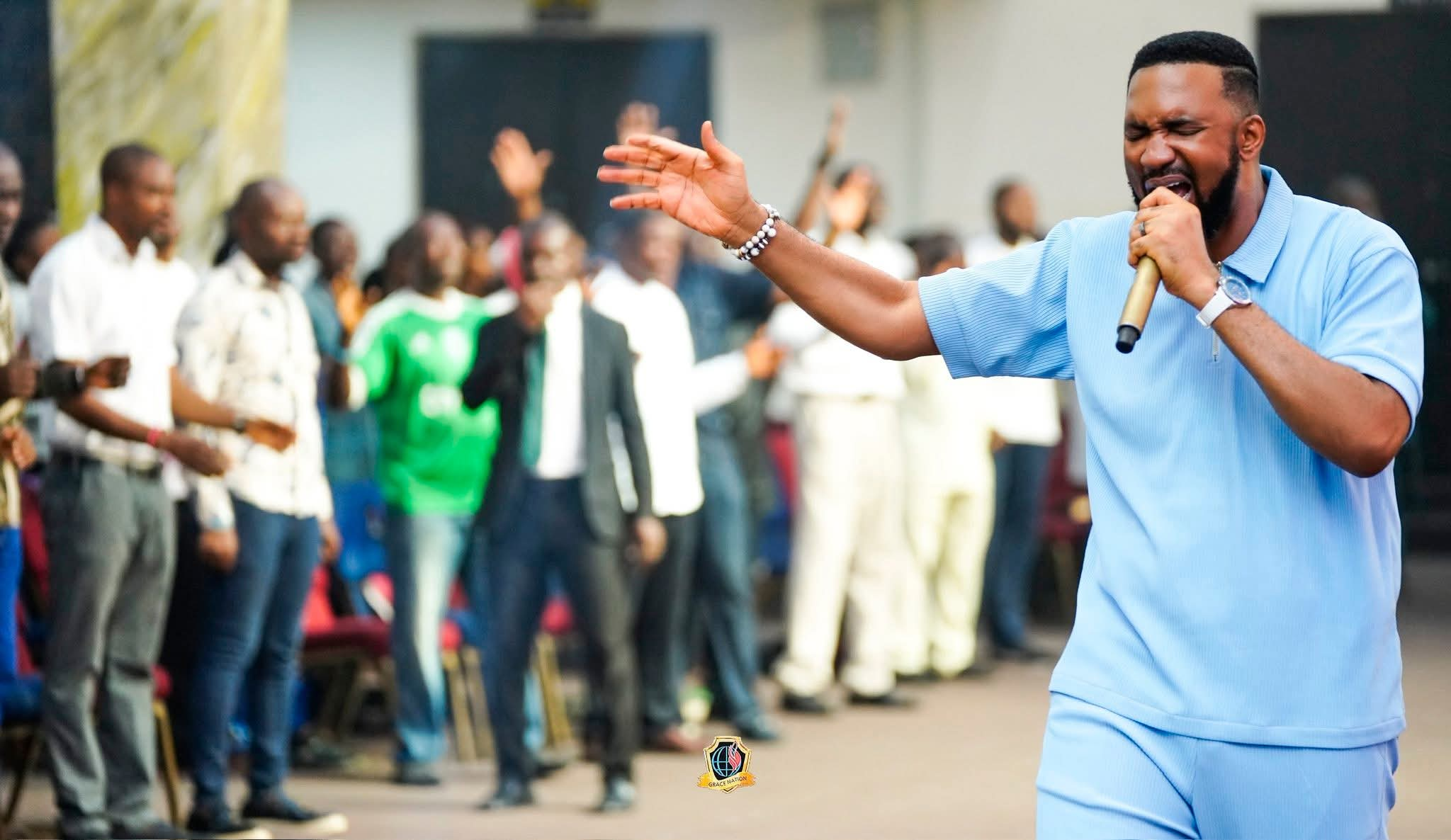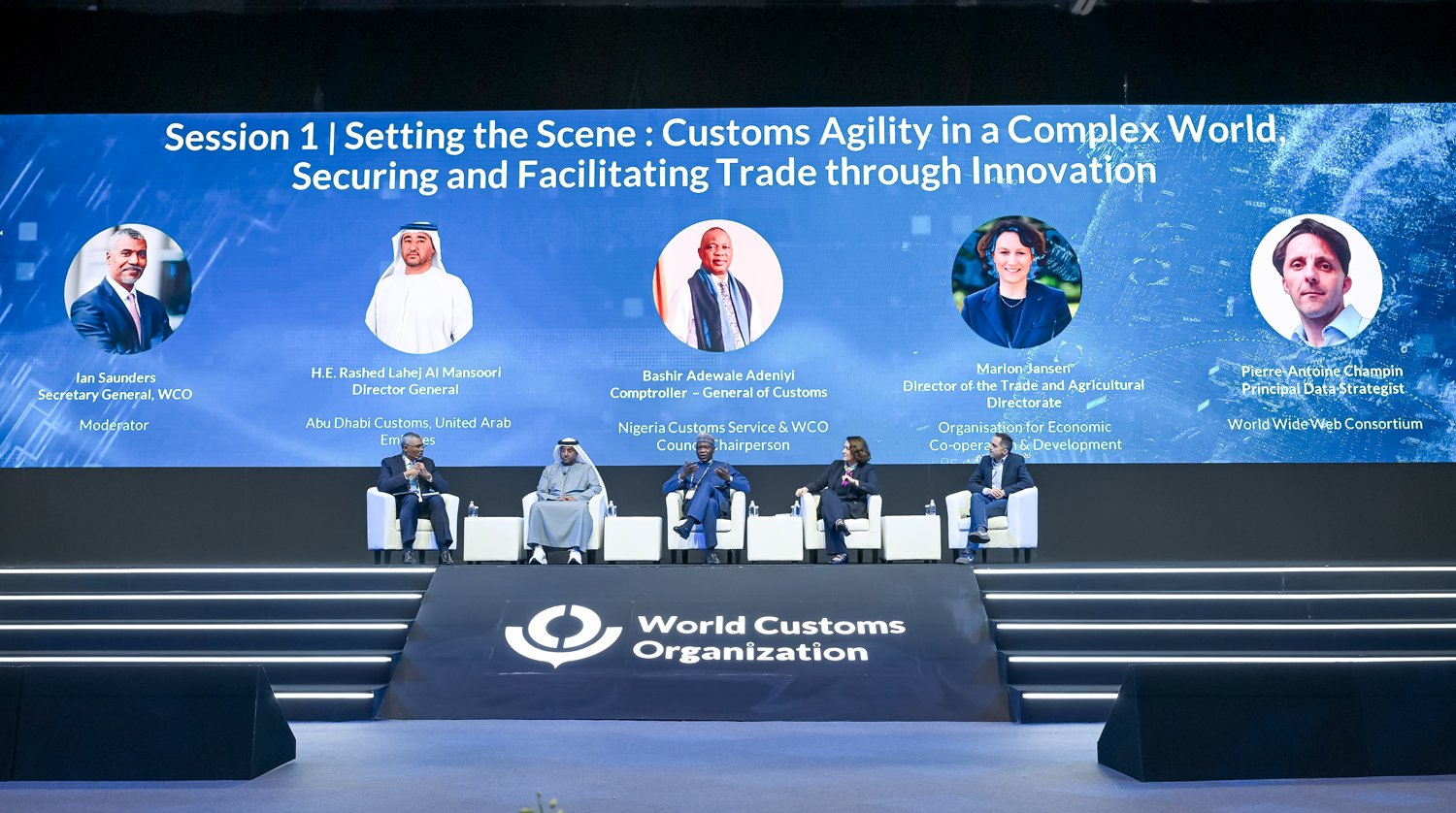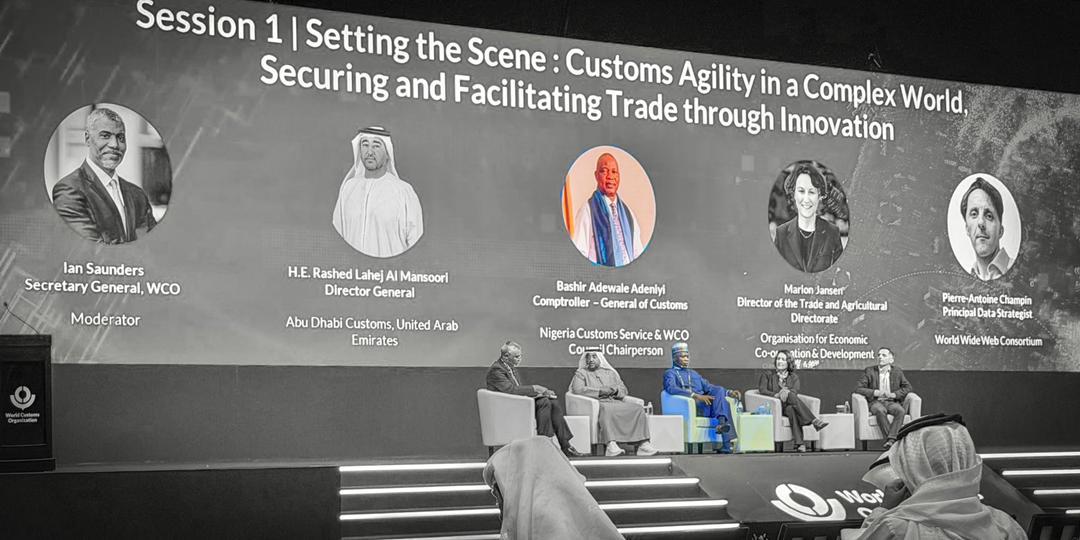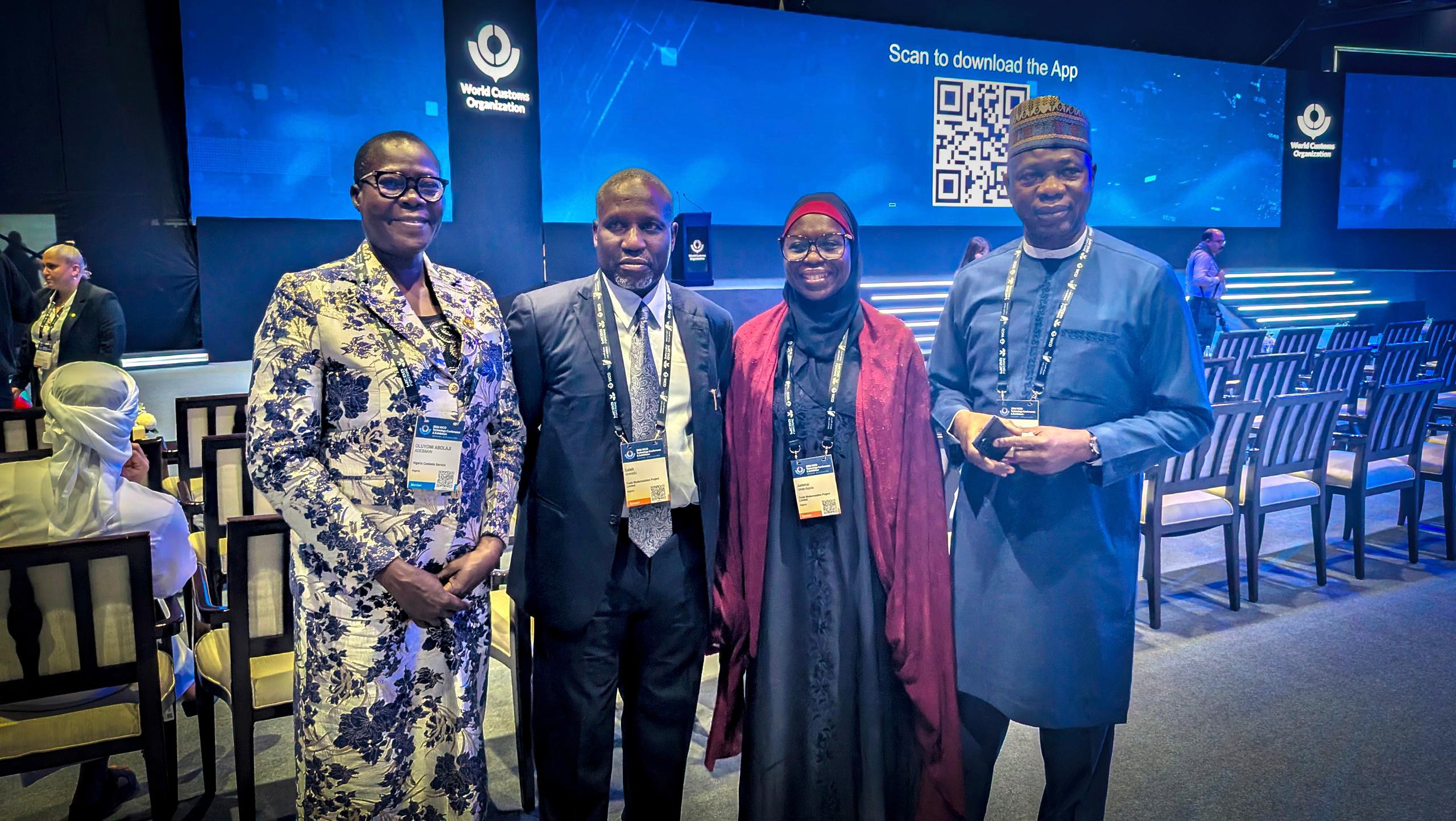Uncategorized
Buratai Reappears with Research Centre
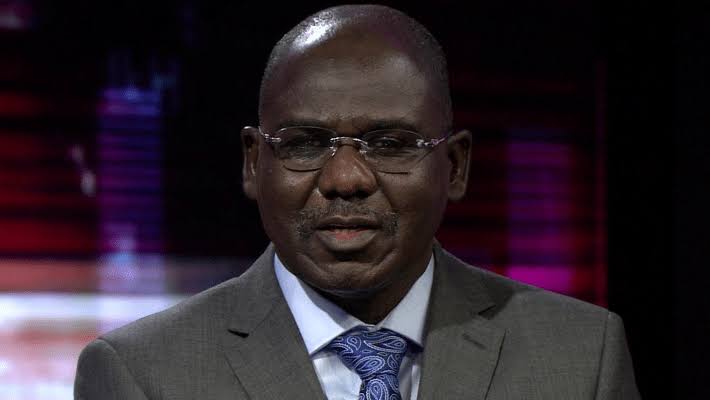
Buratai Reappears with Research Centre
Against the background of increasing loss of faith in the Nigerian project, former Chief of Army Staff and Nigeria’s current Ambassador to the Republic of Benin, General Tukur Buratai, initiated the Tukur Buratai Research Centre, a cutting-edge leadership think-tank to aid the troubled national development journey. Louis Achi examines the underlying vision
This is a good time to recall former French president, Giscard D’Estaing’s counsel to statesmen and world leaders: “There can be no response to history without effort.” D’Estaing’s sage warning was clearly inspired by the environment of the human crisis that defined his era. He was born during the First World War and fought in the second bloody global conflagration.
Today, the stakes are extremely high, and Nigerians are mindful that failure to achieve democratic stability, through a fair, transparent, inclusive governance process and very importantly, an untainted leadership transition process may imperil the country’s future as a coherent state.
Moreover, being Africa’s demographic and natural resources centre of gravity, Nigeria ought to lead the journey of transformative change on the continent. She ought to provide the leadership to raise Africa to her next level. But then charity must begin at home because at this period in human history, it surely would be sheer folly to tread a different path.
And that is the challenge before both the current Muhammadu Buhari presidency and successive administrations. This is also at the core of the leadership think-tank project initiated by the former Chief of Army Staff (COAS) and Nigeria’s current Ambassador to the Republic of Benin.
Conceivably, in order to respond to the tumultuous history he has found himself in and had actually played a crucial role in as counselled by the ex-French President D’Estaing, the former COAS recently initiated the establishment of a cutting-edge leadership research centre at Gora in Nasarawa State, North Central Nigeria.
He stated that the Centre would collaborate with the Nasarawa State University, Keffi, in the fields of strategic studies, peace and conflict studies, environment and leadership for development. Not one to beat about the bush, the ground breaking and fundraiser for Tukur Buratai Research Centre (TBRC) held at Gora in Nasarawa State in late December last year.
When THISDAY directly asked the brawny ex-General, now an Ambassador, why he opted for this path, he provided an insight that showed his lesser known side and spoke to a hidden passion about the progressive transformation of the Nigerian state.
Ambassador Buratai said: “My simple philosophy about life is to continue to live a life of value by improving on the system that we have. As someone from the military, I reckoned the best way for me and my associates to add value to our society and make our country better and stronger is through a think-tank like the Tukur Buratai Research Center (TBRC).’’
In addition, the soldier-statesman said that Nigeria has the potential for greatness but there were insufficient capabilities to transfer those potential into socio-economic benefits for the people. According to him, inadequate research and development implementation in Nigeria create a massive void in the nation’s progress.
His words: “When properly focused research and training institutes are established, innovation and development become a natural progressive activity that benefits the nation’s life. In other words, Nigeria gains the ability to develop positively as a result of enhanced study and training.
“Corruption, insecurity due to terrorism and banditry, inadequate infrastructure, issues in governance and an inept educational system are all systemic flaws. With every amount of commitment made to research and training, as well as a strong national orientation one may be confident that we, as a people and a nation, are on the right track.
“I would like to utilize this TBRC platform to emphasize that now is the moment for us to turn within and devise home-grown solutions to our unique difficulties.”
Further, according to him, the “TBRC was his way of contributing to national development and giving back to society through a well thought-out approach that would have a long lasting impact on the country. As a result of the myriad of socio-economic and political challenges, it may be reasonable to argue that Nigeria can, to a large degree, resolve her development issues through research.”
Perhaps not surprisingly, the unique initiative drew support from several stakeholders who are also concerned about the worrisome drift of the national journey. According to the Vice Chancellor, Nasarawa State University, Keffi, Prof. Suleiman Mohammed, the institute and TBRC had identified their research and development partnership based primarily on security and strategic studies.
In his words: “The vision and mission of the Buratai Centre aligns with the university’s policy and strategy for impacting the society. The centre’s motto which is to promote research for leadership and development is a strong statement about the ultimate value of research to impact humanity positively. We envisage that the centre will be a hub for cross fertilization of ideas on security, peace, conflict, leadership and development issues.”
Soft-spoken Governor Abdullahi Sule of Nasarawa State who performed the ground breaking donated N50 million to the Centre. Over N160 million was realised at the occasion with the highest donation of N100 million coming from the BUA Group of companies.
The emerging consensus is that Ambassador Buratai’s well-considered leadership project is certainly not coming too soon. Today, ethnic nationalism, a crucial component of the myriad challenges, has reared its head in the country with different political nuances – from the overt to the subtle. This has a history. But perhaps most importantly and to the credit of Nigerians, the country remains one entity despite powerful forces that have challenged its growth and severely tested its resilience.
These have undeniably sown the seeds of loss of faith in the Nigerian state. Former US President Bill Clinton captured something of this troubling truth at the Leon H. Sullivan Summit, held in Abuja in July 2006. His words: “There is no single tragedy in Africa more than robbing people of their dreams. The new challenge in Africa today is building a systematic capacity which will enable the people to live to make their own progress and save their own future. If you look at the miracle economies of Asia, it’s not only hard work but the opportunity to be part of a system that will reward your intelligence and hard work.”
Further prodded by THISDAY, the Ambassador made it clear that a strong and innovative think-tank would go a long way to boosting a nation’s institutional development and democracy, noting the Centre will fill the vacuum in the area of research and policy development. He then revealed the hidden historian and philosopher in him by enlisting specific examples of the place of innovative think-tanks in human development history.
Hear him: “Let me make it categorically clear to us that one of the factors that helped the Organisation for Economic Cooperation and Development (OECD) countries is strong and innovative think-tanks. As far back as 1831, the Duke of Wellington set up the Royal United Services Institute for Defence and Security Studies with the aim of helping policymakers navigate through complex policy problems. Then the London Fabian Society which was established in 1884, home to Sydney and Beatrice Webbs, who later founded the London School of Economics.”
He accurately recalled that Lionel Curtis of Oxford University spearheaded the establishment of a think-tank to explore international problems and advocate policy solutions.
According to the ambassador, “In 1919, scholars like Lionel Curtis of the Oxford University spearheaded the establishment of a think-tank to explore international problems and advocate policy solutions. After that, we saw the emergence of the Carnegie Endowment for International Peace in 1916, which in 1927, merged with two other institutions to form the widely acclaimed Brookings Institution. I believe that there exists a gap in our polity that TBRC as a think-tank can fill through research and policy development especially in the areas of security and defence, peace, conflict management, climate change, leadership and development.
“We need development in every sector of our national life, and this is something that should not be left for the government alone to do. As I have said in so many fora, there can be no real development without security and peace, and in the same vein, there must be economic opportunities, equity and justice for security and peace to exist which in turn serves as the foundation or pillars of development.”
Ambassador Buratai’s intervention through his think-tank must, of course, bear a human face – a scenario he has left pretty few in doubt about. It is only through this pathway that Nigeria’s current and subsequent leadership can give meaning to the four essential human freedoms espoused by that great American President – Franklin Roosevelt – whose country has supplied Nigeria with the democratic model she is operating currently.
news
Ramadan 2026: Let’s Be United, Shina Akanni Urges Muslims.
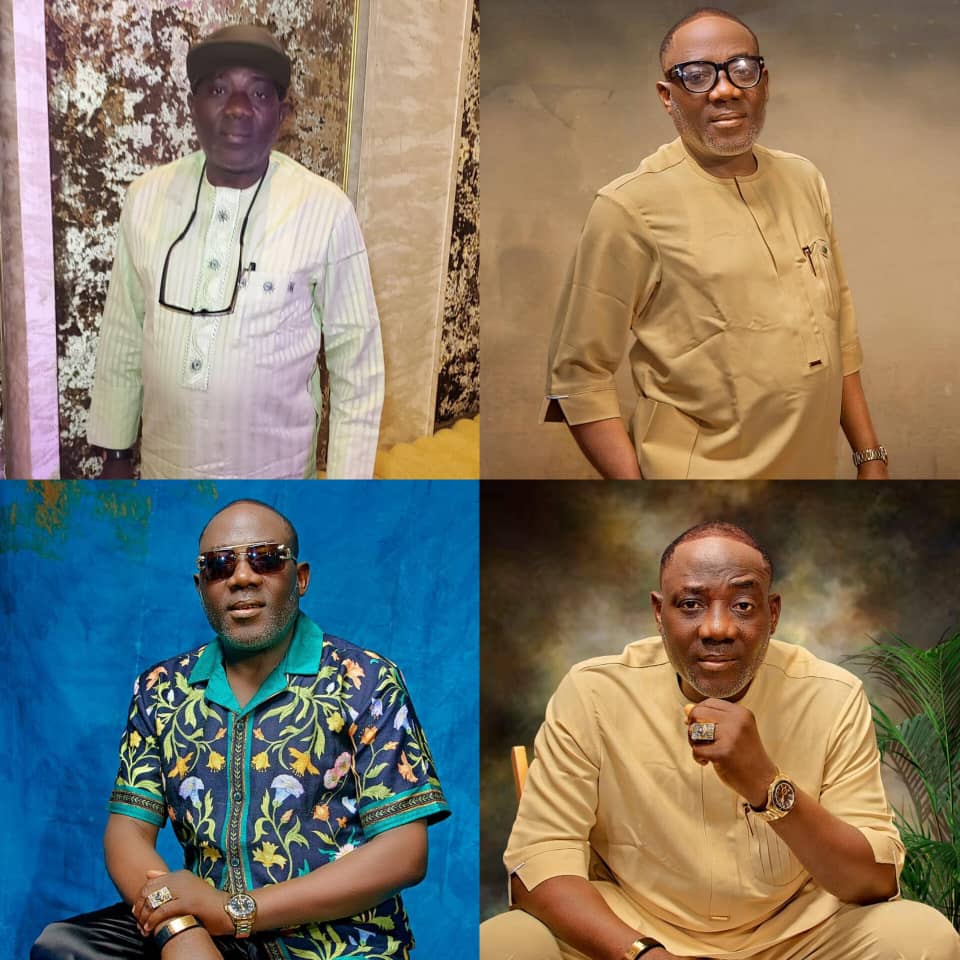
Ramadan 2026: Let’s Be United, Shina Akanni Urges Muslims.
As Muslims all over the world begins the 30 days compulsory fasting and prayer today,top Fuji Musician Aare Sir Shina Akanni Aroworeyin Scorpido has congratulates them for witnessing another month of Ramadan.
Akanni advised them to follow the teachings of the the Holy Prophet Muhammad (SAW) which is peaceful co existence among themselves and their neighbor ‘because Islam is Religion of peace”.
He said the month of Ramadan is an holy month therefore Muslims should try as much as they can to maintain peaceful coexistence among themselves and others and that they should see themselves as ambassador of peace.
While praying for Nigeria,Aare Sir Shina Akanni Aroworeyin Scorpido said he believes that there will be an economic turnaround soon because what’s is happening now are signs of thought times that never last “if we can pecevere things will get better”.
The Scorpido crooner who recently released a hip hop single titled “Magbelo” said he is currently working on a complete album which will be released before the end of the year.
Aare Sir Shina Akanni Aroworeyin Scorpido whose last album ‘ABCD” is still in hot demand said that his next album will be a pot pouri of all kinds of music because his brand of Fuji music is a blend Fuji , Hip-hop,Apala ,Highlife and others.
Uncategorized
The Enemies Within: Jonahs Are Not Manageable — Dr. Chris Okafor
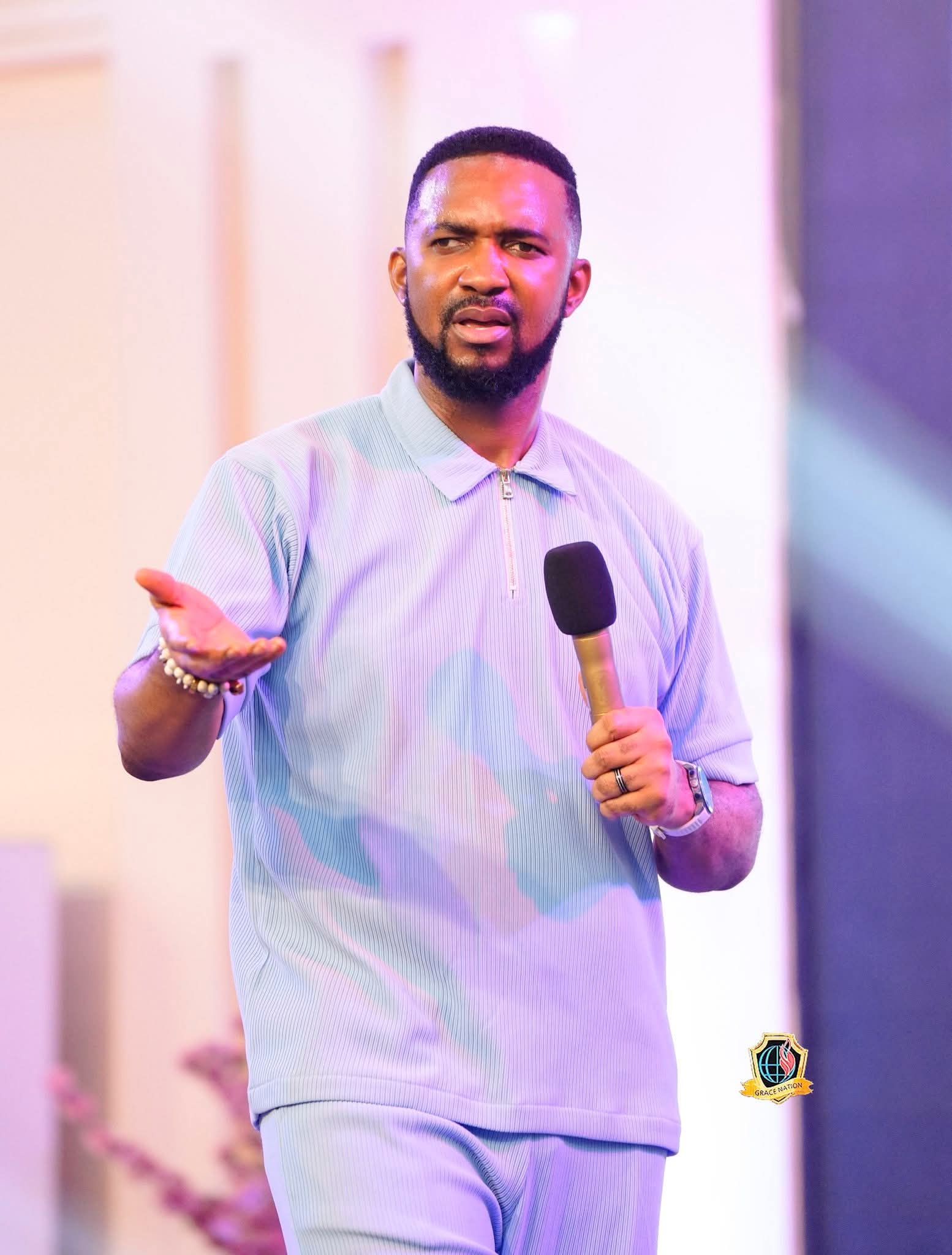
The Enemies Within:
Jonahs Are Not Manageable — Dr. Chris Okafor
…….“To remove Jonah, you must bring Jesus into the matter.”
When a “Jonah” enters a person’s life, confusion, gossip, blackmail, betrayal, and the pull-him-down syndrome often follow. But the moment Jesus Christ is invited into the situation, the storm subsides and stability is restored.
This was the central message delivered by the Generational Prophet of God and Senior Pastor of Grace Nation Global, Dr. Chris Okafor, during the midweek non-denominational Prophetic Healing, Deliverance and Solutions Service (PHDS) held at the international headquarters of Grace Nation Worldwide in Ojodu Berger, Lagos, Nigeria.
The Clergyman also declared that Nothing Happens Without Spiritual Influence
In his sermon titled “The Enemies Within,” Dr. Okafor declared that nothing happens without spiritual involvement. According to him, every visible battle has an invisible root.
Referencing the biblical story of Jonah, the Man of God explained that Jonah’s presence on the ship gave access to a contrary spirit that tormented everyone onboard.
Despite the losses suffered by innocent traders and sailors, the storm persisted because of one man’s disobedience.
However, he noted that when Jesus speaks into a situation, every storm must obey. Just as Christ rebuked the storm and it ceased, so too will the storms in believers’ lives subside when He is invited into their “boat.”
*The Impact of a Jonah*
Dr. Okafor further emphasized that “Jonahs” are difficult to manage. When such individuals are present in one’s circle, progress becomes delayed.
What should ordinarily manifest quickly may be prolonged or frustrated because someone close—someone who understands you deeply—may be operating as a spiritual adversary.
He explained that negative narratives, unnecessary battles, and unexplained setbacks often begin when a “Jonah” gains access to a person’s inner circle.
*The Solution*
“To remove Jonah from the boat of your life,” the Generational Prophet declared, “you must invite Jesus Christ into the matter.”
According to him, when Jesus takes control of the boat, the plans of the enemy are overturned.
What was designed for downfall becomes a testimony. No storm or battle can succeed where Christ reigns, and the enemy is ultimately put to shame.
The midweek service witnessed a strong prophetic atmosphere, with the power of God evident through deliverance, restoration, and divine revelations.
The Generational Prophet ministered deeply in the prophetic, calling out names, villages, and addressing alleged spiritual strongholds, as many lives were reportedly restored—all to the glory of God.
By Sunday Adeyemi
Uncategorized
FROM BORDER TO MARKETS: HOW NIGERIA’S REFORMS ARE REWRITING AND MODERNISING TRADE FACILITATION By O’tega Ogra
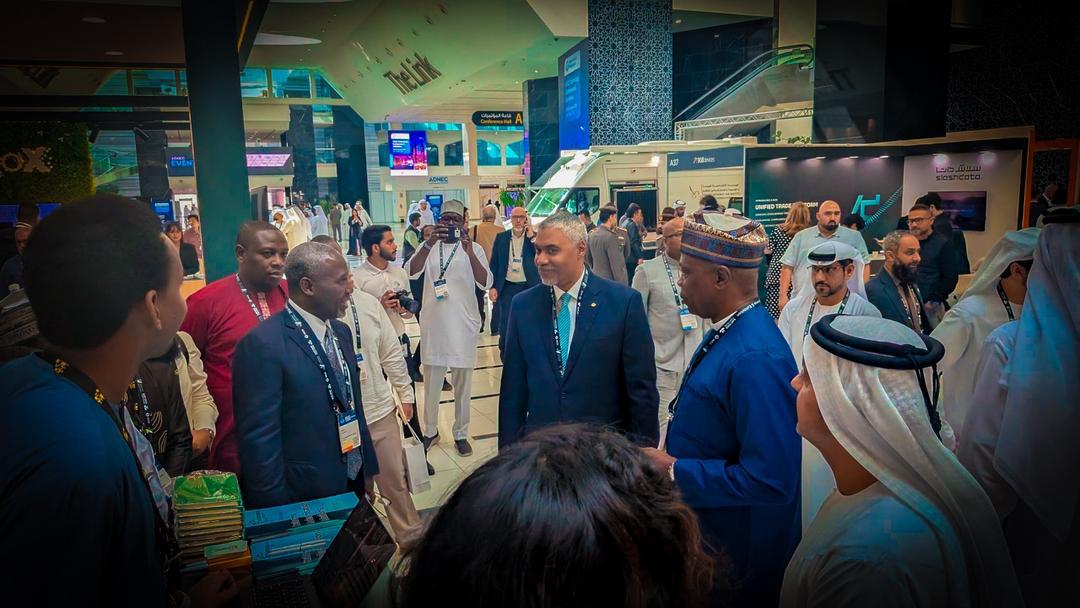
FROM BORDER TO MARKETS: HOW NIGERIA’S REFORMS ARE REWRITING AND MODERNISING TRADE FACILITATION
By O’tega Ogra
On the surface, the 2026 World Customs Organization (WCO) Technology Conference in Abu Dhabi, held in the last week of January, followed a familiar script: flags, formal sessions, carefully worded speeches. But beneath the choreography, something more consequential was unfolding. As customs chiefs and trade officials compared notes on the future of borders, Nigeria arrived not with theory, but with a working proposition.
The Nigeria Customs Service (NCS) Modernisation Project, being implemented through Trade Modernisation Project (TMP) Limited, unveiled to a global audience of customs administrators and policy leaders a window into how Africa’s largest economy is confronting one of the most complex challenges in public administration: reforming the machinery of trade while it is still running.
For decades, customs reform was treated largely as a technical exercise—frequent patches here, shoddy fixes there; new software in one corner, revised procedures in another. Nigeria’s presence in Abu Dhabi signalled something different. TMP Limited, working in partnership with the NCS, advanced the argument that trade is a cornerstone of economic development and must be supported by organic, sustainable partner ecosystems. Such ecosystems deliver speed and trust, revenue and credibility, and secure borders without stifling commerce.
That argument resonated in a room increasingly aware that global trade is no longer defined solely by tariffs and treaties, but by data, interoperability, and the quiet efficiency of systems that simply work.
The annual WCO Technology Conference has, in recent years, become a barometer for the direction of global trade governance. This year’s discussions reflected a shared anxiety: supply chains are more fragile, compliance risks are rising, and governments face mounting pressure to collect revenue without discouraging investment. Customs administrations now sit at the intersection of all three.
Nigeria’s response has been to attempt a full reset.
At the heart of this effort is the NCS Modernisation Project, implemented through a Public-Private Partnership (PPP) arrangement with TMP Limited as the concessionaire. The project seeks to replace fragmented technology deployments and manual processes within the Nigeria Customs Service with a single, integrated framework. This is anchored on B’Odogwu, a Unified Customs Management System (UCMS) that brings together cargo clearance, risk management, payments, and inter-agency collaboration. The ambition is sweeping—and so are the stakes.
Alhaji Saleh Ahmadu, OON, Chairman of TMP, framed the initiative as nothing less than an institutional reconstruction, designed to position the NCS at the forefront of global customs administration technology, aligned with international standards and assurance frameworks.
“Digital trade modernisation is not just about upgrading systems,” he told participants in Abu Dhabi. “It is about upgrading trust, predictability, and confidence in how trade flows through our borders.”
That choice of words matters. Nigeria’s economy has long struggled with the perception gap between its size and the ease of doing business. Investors cite delays. Traders complain of opacity. Government points to revenue leakages. In this context, customs reform becomes as much a credibility project as a technical one.
Saleh’s message was timely and direct: modern trade demands modern customs. Data-driven processes, automation, and risk-based controls are no longer luxuries; they are prerequisites for competitiveness in a world where capital moves faster than policy.
The institutional face of this digital transformation is the Comptroller-General of Customs, Bashir Adewale Adeniyi, who led Nigeria’s delegation to Abu Dhabi. His message reflected a subtle but important shift in how customs leadership now understands its role.
“Customs administrations today must evolve from gatekeepers to facilitators of legitimate trade,” Adeniyi said. “Nigeria’s customs modernisation project reflects our determination to place the Nigeria Customs Service at the centre of national economic transformation.”
It is a familiar refrain globally, but one that carries particular weight in Nigeria, where customs revenue remains a critical pillar of public finance. Automation, Adeniyi argued, is not about weakening control; it is about strengthening it through intelligence rather than discretion.
Risk management systems reduce unnecessary physical inspections. Integrated platforms limit human contact. Data analytics improve compliance targeting. When executed well, the result is faster clearance for compliant traders and tighter scrutiny for high-risk consignments.
In Abu Dhabi, peers from Asia, Europe, and Latin America listened closely to Nigeria’s presentation. Reforming customs in a small, open economy is one thing. Doing so in a market of over 200 million people, home to some of Africa’s busiest ports and its largest economy, is quite another.
Nigeria’s engagement emphasised that customs modernisation is embedded within a broader economic reform agenda under President Bola Ahmed Tinubu, GCFR. Simplifying trade procedures, strengthening revenue assurance, and aligning with international standards form part of a wider effort to reposition the economy for investment-led growth.
What makes the project particularly noteworthy is its insistence on end-to-end coherence. Rather than digitising isolated functions, the reform aims to connect agencies, harmonise data, and reduce duplication across government—an all-of-government approach that acknowledges an uncomfortable truth: trade friction is often created not at the border, but between institutions.
The WCO 2026 Technology Conference offered Nigeria more than a platform; it provided a stress test. Questions from peers were pointed. How will change be sustained across political cycles? How will capacity be built? How will entrenched institutional behaviours be unlearned?
The responses were pragmatic. Reform is being phased. Training programmes are ongoing. International benchmarks are being adopted not as slogans, but as operating standards. There were no claims of perfection—only a clear statement of intent.
“Our engagement here underscores Nigeria’s commitment to international cooperation,” Adeniyi noted. “We are learning, sharing, and contributing to global conversations on the future of customs administration.”
That contribution matters. As Africa moves to deepen regional trade under continental frameworks, customs efficiency will determine whether integration succeeds in practice or remains aspirational on paper. Nigeria’s experience, if successful, could offer a valuable template for other developing economies navigating similar constraints.
In Abu Dhabi, the mood was cautious but curious. Reform fatigue is real in many countries. Yet there was a growing sense that Nigeria’s effort—precisely because of its scale and difficulty—deserves attention.
Borders are rarely glamorous. But they are decisive. In choosing to modernise its borders in public, under global scrutiny, Nigeria is signalling something beyond technical competence. It is signalling seriousness.
And in global trade, seriousness still counts.
O’tega Ogra is Senior Special Assistant to President Bola Ahmed Tinubu, GCFR, responsible for the Office of Digital Engagement, Communications and Strategy in the Presidency.
-

 celebrity radar - gossips6 months ago
celebrity radar - gossips6 months agoWhy Babangida’s Hilltop Home Became Nigeria’s Political “Mecca”
-

 society6 months ago
society6 months agoPower is a Loan, Not a Possession: The Sacred Duty of Planting People
-

 society5 months ago
society5 months agoReligion: Africa’s Oldest Weapon of Enslavement and the Forgotten Truth
-

 news6 months ago
news6 months agoTHE APPOINTMENT OF WASIU AYINDE BY THE FEDERAL GOVERNMENT AS AN AMBASSADOR SOUNDS EMBARRASSING

